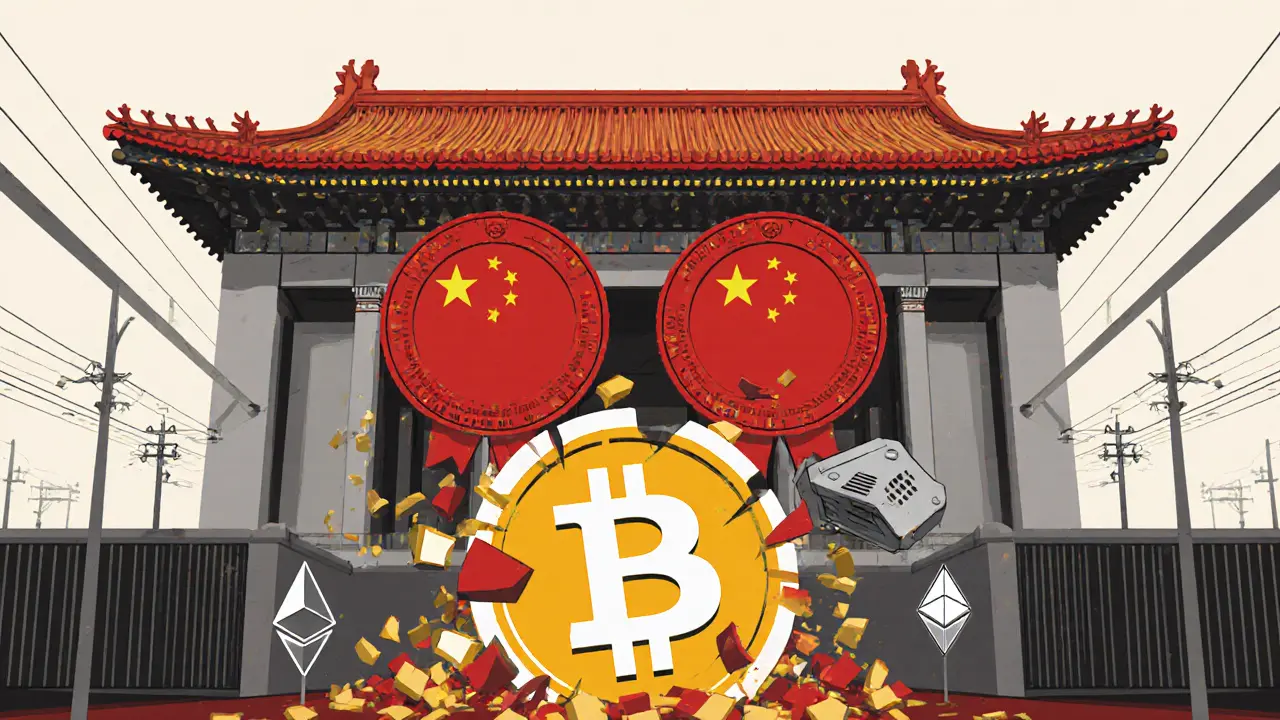Cryptocurrency Legality in China: What’s Banned, What’s Not, and How It Affects You
When it comes to cryptocurrency legality in China, the Chinese government treats digital currencies as financial instruments with strict controls, not as money. Also known as crypto regulation in China, this policy isn’t about stopping technology—it’s about keeping financial control in state hands. Bitcoin and Ethereum aren’t illegal to hold, but buying, selling, or trading them through local exchanges is banned. Banks and payment processors can’t touch crypto transactions. If you’re in China, you can’t use Binance, Coinbase, or any local platform to trade. The crackdown started in 2021 and got tighter every year since.
The real shift happened when China launched its own digital yuan, a state-controlled central bank digital currency (CBDC) designed to replace cash and monitor every transaction. Also known as e-CNY, this isn’t blockchain in the public sense—it’s a centralized ledger only the government can access. This makes the digital yuan the only legal digital money in China, and everything else is treated as a speculative asset with high risk. Mining? Banned. Mining farms? Shut down. Even using foreign mining hardware for personal use can trigger scrutiny. The government doesn’t want decentralized systems competing with its financial authority. Meanwhile, crypto trading China still happens underground—through P2P platforms, VPNs, and offshore wallets. People use WeChat, Telegram, and local forums to trade Bitcoin for cash with strangers. It’s risky, but it’s not rare. Enforcement is selective: most individuals aren’t targeted unless they’re moving large sums or running businesses. The rules aren’t about punishing users—they’re about preventing capital flight and keeping the financial system under tight control.
What you’ll find in the posts below are real stories from people who’ve navigated these rules. You’ll see how traders in China bypass restrictions, how miners relocated after the 2021 ban, and why scams targeting crypto users in China are exploding. There’s no official airdrop, no legal exchange, and no government support—but people still find ways. These aren’t theoretical guides. They’re reports from the ground, showing how crypto survives even when the state says it shouldn’t.
VPN Usage for Crypto Access in China: Legal Risks You Can't Ignore
Using a VPN to access crypto in China carries serious legal risks. By 2025, all private cryptocurrency activity is banned, and bypassing internet restrictions with unapproved VPNs can lead to fines, asset seizures, or criminal charges.
learn moreIs Crypto Regulated in China? The Full Ban Explained (2025)
As of 2025, China has banned all cryptocurrency activities-including owning, trading, and mining. The law is strict, enforcement is aggressive, and violations carry prison sentences. Here’s what you need to know.
learn moreMining Crypto in China: Law and Restrictions in 2025
China banned all cryptocurrency mining in May 2025, making it a criminal offense. Learn why the government cracked down, how enforcement works, and what it means for global crypto markets.
learn more

